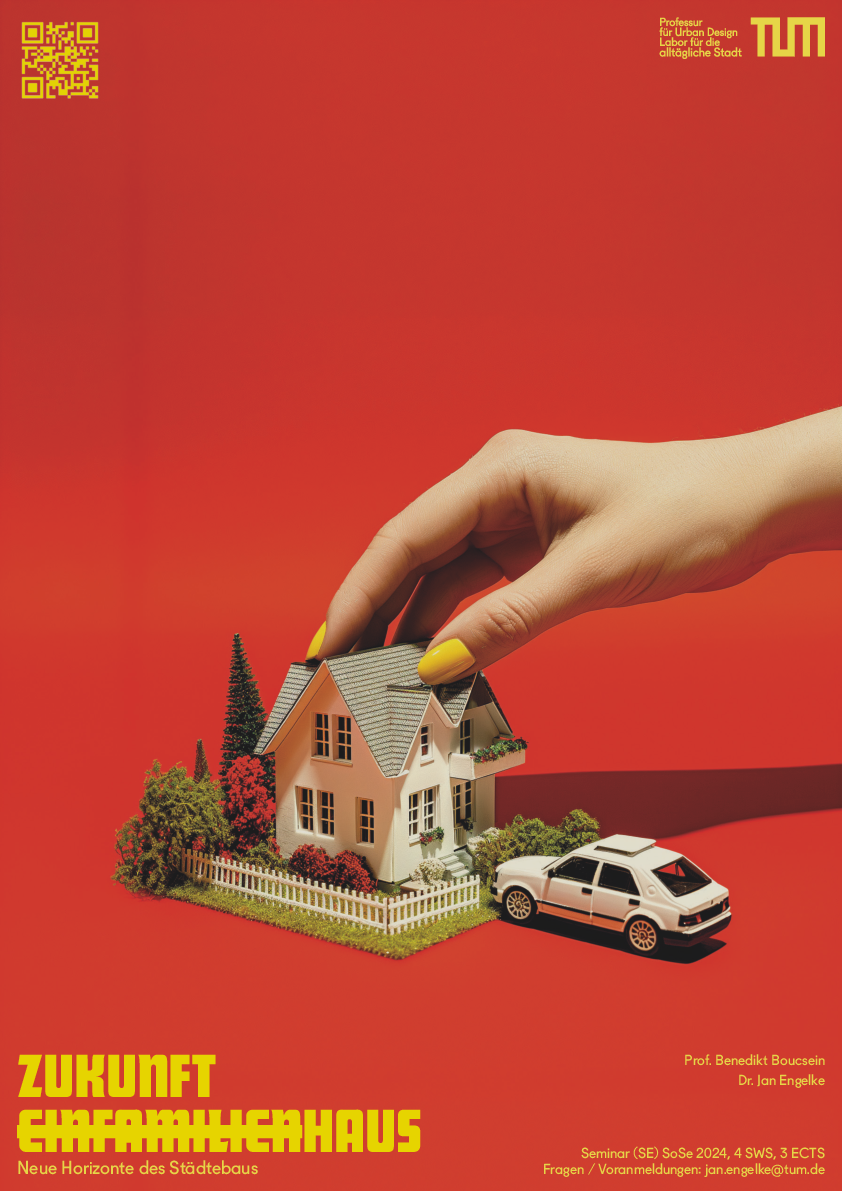No other form of housing is as popular, as controversial and as successfully ignored in the architectural discipline as the detached house. Founded on anachronistic family ideals, gender roles and concepts of land ownership, the detached house is criticized for its massive consumption of materials, energy and land, its dependence on cars and its programmatic inflexibility. In the face of the climate crisis and increasingly diverse lifestyles, the dream homes of the boomer generation seem completely outdated.
But despite all critique, today the detached house is still the most popular form of housing: more than half of people in Germany currently live in a detached house. Two thirds of the German population would like to live in a detached house. The images of freedom, security and individual fulfillment associated with this form of housing are so deeply rooted that the climate crisis and rising interest rates are barely able to put a halt to the frequently proclaimed 'dream of a detached house': Around 100,000 new detached houses are built every year.
There is a consensus in the discipline that new construction must be fundamentally and radically restricted, while there is a shortage of housing in metropolitan areas. A significant part of the solution may lie in the 16 million existing single-family homes. Not only are considerable material resources bound here. The living space of these houses also holds considerable potential for mobilizing urgently needed living space: The average single family home is occupied by only 1.8 people.
In the interdisciplinary seminar "New horizons of urban design: the future of single-family homes", we develop sound and surprising perspectives on existing single-family home areas beyond the current usual and imagined. Immense material resources are bound up in existing single-family homes. What are the prospects for a sustainable approach to this material? The patriarchal, heteronormative ideal of the nuclear family and gendered role models are the structural foundation of the detached house. How can the existing building be adapted for more diverse lifestyles? The detached house is the architectural consequence of the Fordist economy and the promise of endless fossil fuels. How can these outdated structures be rethought in the future? We need to look beyond the house and the site to a new structuring of everyday life.
The aim of the seminar is to develop a surprising transformation potential for a clearly defined, specific aspect on the basis of a self-chosen study area (individual house or single-family house residential area). Relevant topics will be outlined in the inputs at the beginning of the seminar and possible research questions will be worked out together in a workshop. In an analysis phase, a specific topic is worked out independently in small groups and a transformation potential is developed in a conception phase. The analysis and transformation potential are presented and put up for discussion at the "Urban Convention". The final submission takes place after a revision at the end of the semester.
We look at the single-family house on different scales and from different disciplinary perspectives, from the technical to the social. A critical examination of its structural foundations (property, gender, class) is the foundation of the seminar. Building on case study and literature analysis, we will pursue clearly defined speculations in groups of two and, in a third step, combine these together to create new images of everyday life.
Phase I: Inputs and workshops on specific topics with external guests
Phase II: Development of own position, selection of case study
Phase III: Elaboration of speculation for a concrete situation
Final presentation: Scale, media and formats to be developed together.
The seminar is open to all students of all disciplines of the School of Engineering and Design who are interested in the future changes of cities and related areas of urban design. Basic knowledge of urban design is not required, but a high level of interest is expected. Course language is German, submissions and contributions in English are possible.
The seminar will be held in hybrid form largely in presence, individual discussions will be held via video call.
The seminar will take place on Mondays from 13.15-16.30.
Dates: 22.04.24, 29.4.24 (field trip, 13.15-19.00), 6.5., 13.5., 27.5., 3.6., 10.6., 17.6., 24.6. (13.15-16.30)
